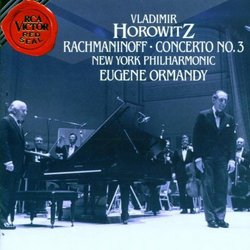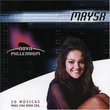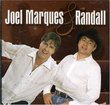| All Artists: Sergey Rachmaninov, Eugene Ormandy, New York Philharmonic, Vladimir Horowitz Title: Rachmaninoff: Concerto No. 3 Members Wishing: 0 Total Copies: 0 Label: RCA Release Date: 4/6/1993 Genre: Classical Styles: Forms & Genres, Concertos, Historical Periods, Modern, 20th, & 21st Century, Instruments, Keyboard Number of Discs: 1 SwapaCD Credits: 1 UPC: 090266156429 |
Search - Sergey Rachmaninov, Eugene Ormandy, New York Philharmonic :: Rachmaninoff: Concerto No. 3
 | Sergey Rachmaninov, Eugene Ormandy, New York Philharmonic Rachmaninoff: Concerto No. 3 Genre: Classical
|
Larger Image |
CD DetailsSimilar CDs |
CD ReviewsRachmaninoff's Two Great Interpreters in Collaboration Interplanetary Funksmanship | Vanilla Suburbs, USA | 08/19/2002 (5 out of 5 stars) "This RCA Red Seal release of Rachmaninoff's Third Concerto was recorded on the 50th anniversary of Russian Pianist Vladimir Horowitz' American debut. Though not preferred by most critics to his 1951 recording with Reiner and the RCA Symphony Orchestra, this is by far Horowitz' most polished, emotional and powerful performance - full of cantabile and warmth, yet never lacking in the pyrotechnics for which Volodya was so famous. His treatment of the concerto is actually closer to his 1930 recording with Albert Coates and the London Symphony Orchestra. A number of critics have pointed out that some portions of this recording were cut in the studio following the actual concert because Horowitz made a few mistakes. That's all good and well, but this review is of the final, edited recording, not specifically the concert itself.How fortunate we are, as well, to have Rachmaninoff's compatriot Eugene Ormandy (to whom the Russian composer dedicated his final work, "Symphonic Dances") as conductor for this eventful recording - this is the only available recording of Rachmaninoff's two greatest champions in collaboration. This, in fact, is my favourite classical recording - period. It documents Horowitz' first appearance with an orchestra since 1953 and one can sense the anticipation from the opening chords of hearing what Horowitz would come up with. This piece has been long known as Horowitz' warhorse, but for the first time, Horowitz does not pounce upon this great work immediately with his explosive pianism. Instead of attacking the opening movement (Allegro ma non tanto) with the linear thrust of sound for which he was famous, here Horowitz delivers a subtle, reflective rendering. It is as though Horowitz has been holding back this concerto for twenty-five years, and doesn't want to let it go; each note is imbued with urgency and passion - flowing from Horowitz' fingers like so many precious gems and gold pieces. His buildup to the cadenza is done superbly (Horowitz plays the original version, rather than the more virtuosic ossias. Commented Horowitz about his choice of cadenza, "I play the original cadenza in the first movement. Rachmaninoff always played it too. You know, the cadenza really builds up to the end of the concerto. The alternate cadenza is like an ending in itself. It's not good to end the concerto before it's over!") Eugene Ormandy's conducting is equally commanding. I can only imagine what was going through his mind as he conducted this piece, which he had almost forty years before recorded with Rachmaninoff himself. While the strings are starker than those of the Philadelphia Orchestra, Ormandy skillfully bends the will of the New York Philharmonic to Horowitz' playing: Where Horowitz takes a relaxed tempo, the orchestra gives him plenty of room, playing in refrain off his melodies. Two examples of this are the simple, eloquent flute solo coming off the heels of Horowitz' cadenza in the first movement, and the undercurrent of the lower strings in the second (Intermezzo: Adagio) over which Horowitz conjures from his famed Steinway the entire range of his vast pianistic emotion. Yet, when Horowitz explodes into flurries of chordal progression and crescendi, the Philharmonic brings in the air support he needs to pull off this concerto of massive and heroic proportions. In the finale (Alla Breve), all of the tentativeness and anxiety of the previous two movements are shed as Horowitz and Ormandy build to finale's climax. Deftly they work in unison, each passage building upon another suspensefully, tautly, the tempo accelerating ever so slightly to the impassioned conclusion. The last two minutes of the concerto are beautifully and triumphantly delivered, the brass and timpani playing in staccatoed counterpoint to Horowitz' piano, which ardently ascends in legato to the pinnacle of the concerto. This performance, moreso than any other, brings out the fully romantic nature of this concerto. When the concerto is finished, you suddenly realise that the sense of rapture and deliverance you had felt has not left you. And when the last notes reverberate from your speakers, you won't know whether the thunderous ovation you hear is coming from the Carnegie Hall audience, or from within." Response to John Grabowski Donald C. Allen | Carlisle, MA USA | 01/29/2002 (4 out of 5 stars) "John -- You're right about this performance, but you are missing the point. Horowitz was a pianist for the history books, and I disagree with you that his earlier performances (e.g., the '51 performance with Reiner) is/are exceed by anyone. I know the Argerich and Ashkenazy performances well and they are not even close. As for Rachmaninoff himself, he said that Horowitz played the piece better than he did. I'm not so sure; the composer's own performance is pretty phenomenal. Horowitz/Ormandy is a historic document that absolutely needs to be in print and in one's collection, regardless of whether this is Horowitz at his best or not. That's the point. And I freely concede this isn't Horowitz at anywhere near his best. As he got into his 70s, his playing declined noticeably and rapidly. The last great gasp -- the Moscow recital -- has some wonderful moments, but there's no way an octagenarian Horowitz could match his younger self, given that Horowitz was basically a super-virtuoso. Rubinstein, in some ways, was a better pianist in his 70s than in his 50s. This is not true of Horowitz." His worst Rach 3 on record John Grabowski | USA | 08/29/2005 (2 out of 5 stars) "People who say this is THE BEST Rachmaninoff 3 (seems like every Rachmaninoff 3 is the best Rachmaninoff 3) probably have heard few others. And no, it's not true that Rachy himself stopped playing the concerto after hearing VH play it in 1928. Rachmaninoff had a long and successful solo career that included many performances of this work through the 1930s and 40s...this can easily be looked up. In fact, he tired of playing it, but the public and his agents pretty much forced it on him. His own recording, made in 1939, is superb, though Horowitz's first, made in 1930 with Coates and the LSO (EMI, sadly out of print) is far better--one of the very best, in fact.
This recording, however, is acoustically harsh and brittle, fast, unfelt, nervous and colorless. Ormandy leads a New York Philharmonic that is really not interested in responding at all (they can frequently be this way to guest conductors) and Horowitz is brittle and stiff-fingered. With so many recordings crowding the field, I can't understand why this one is still around, except that perhaps many people are "sucked in" by the "event" surrounding the performance. But such event performances and recordings are often disappointing. (Bernstein at "The Wall," Richter's 1st Carnegie Hall performance, Argerich, Maisky and Kremer doing the DSCH E minor trio.) For some thrilling modern performances of the concerto, try Lazar Berman/Bernstein/NYPO, 1958, or Pletnev/Rostropovich/Russian Nat'l Orchestra on DG. For the best historic performance, it's Horowitz/Coates/1930. Rachmaninoff's own performance, a shade below the Horowitz of 1930, is also indespensible. This recording, alas and sadly, is not. " |

 Track Listings (3) - Disc #1
Track Listings (3) - Disc #1


